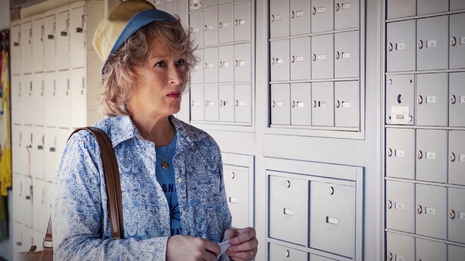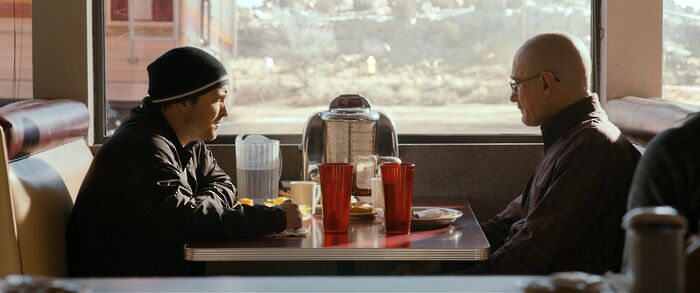Even Meryl can’t save The Laundromat‘s hot mess
This star-stuffed Netflix vehicle doesn’t tell Gabriel Humphreys anything new about the Panama Papers, or… anything else really

The latest in Netflix’s recent crop of original releases, The Laundromat plunges the viewer into the real-life events and consequences of the leaking of the Panama Papers. This leak revealed international law firm Mossack Fonseca to be responsible for more than 210,000 offshore entities, used by corporations for tax avoidance purposes.
Director Steven Soderbergh, of Ocean’s Eleven through Thirteen and Erin Brockovich fame, casts globally shocking events through a personal and very human lens; the deaths of ferry passengers due to a freak wave on a quiet lake unveils falsified documents and defrauded insurance that gradually begins to unravel the web of lies that stretches across the world.
Like many straight-to-Netflix productions, the film boasts an impressive cast, led by Oscar-winner Meryl Streep, playing Ellen Martin, whose husband dies tragically in the ferry accident. As ever, she is a stand-out, but the role is hardly her most complex, or her most engaging to watch. Gary Oldman and Antonio Banderas form the devious duo of protagonists/antiheroes, Jürgen Mossack and Ramón Fonseca respectively, who serve as our guides through the story.
They are sleaze with ease, but I can’t help thinking they could have invested more of the budget into Oldman’s dialect coaching, which treads dangerously close to the pantomime villain or the Bond evil mastermind. They are complemented with a talented ensemble which features David Schwimmer, Sharon Stone, Melissa Rauch, and cameos from comedy legends Chris Parnell and Will Forte.
Stylistically, the film is distinctive, to say the least. Among shocking corruption, exploitation by the super-rich and real-life events, surreal moments burst through – Oldman and Banderas seem to roam on an alternate plane of existence. They float from their own stories, to Streep’s, to an imagined fantasy realm reserved for the wealthy – a plush bar where only attractive and rich people lounge. These interludes, while comical, are often disorientating, clouding the real life of the story, and undermining the emotional payoff of Streep’s storyline in particular.
Horrifying events that are set up so delicately – the traumatic tragedy of a boat accident piercing through a peaceful and pleasant morning – get lost in the surreal swell of waves of more didactic plot points and narrative devices. It also feels like the film tries to cram an entire philosophy into its meagre 95 minute run-time, and I can’t help thinking that it would have worked better as a series, with time to really connect with some of the characters, and more firmly revile others.
“The film’s brand of surreal didactism undermines any emotional payoff”
Ambiguity is a powerful filmic tool, however, and there are elements of the storytelling I enjoy. Giving Oldman and Banderas free reign as our narrators raises important issues, though seemingly an odd choice and admittedly played slightly heavy-handedly. We tend not to question the narrators of stories we too easily absorb from the screen, and in their opening duologue on the nature and politics of money in the modern world they affirm that this story is about us, because it is all about money – and they have a very valid point.
This film challenges us, directly, to engage with and oppose them, to stand up to economic injustice, and see desperate money-grabbing and obsessive capitalism for the absurdity that it is.
At times, it feels like The Laundromat is setting itself up to follow in the footsteps of other comedy-dramas that have their roots in real-life events. Looks to camera, excessive self-awareness, external narration by characters who also figure in the main narrative – at points it veers into an SNL-style Ferris Bueller takedown as the clichés pile on heavy.
The closing moments so nearly offered some redemption. Streep’s final monologue as herself, speaking the words of the still-anonymous leaker, was one of the best in the show but unfortunately not enough to save it.
The blend of fourth-wall-breaking, I-told-you-so tone is close to genius. What The Big Short did for subprime mortgage bonds, The Laundromat tries to do for tax avoidance, but Soderbergh’s version can’t quite deliver. It’s caught in its own pretension, and its brand of surreal didacticism falls disappointingly flat.
 News / Colleges charge different rents for the same Castle Street accommodation2 March 2026
News / Colleges charge different rents for the same Castle Street accommodation2 March 2026 News / News in Brief: waterworks, wine woes, and workplace wins 1 March 2026
News / News in Brief: waterworks, wine woes, and workplace wins 1 March 2026 News / Climate activists protest for ‘ethical careers policy’1 March 2026
News / Climate activists protest for ‘ethical careers policy’1 March 2026 News / Angela Merkel among Cambridge honorary degree nominees27 February 2026
News / Angela Merkel among Cambridge honorary degree nominees27 February 2026 News / Private school teacher who lied about Cambridge degree barred from teaching27 February 2026
News / Private school teacher who lied about Cambridge degree barred from teaching27 February 2026










